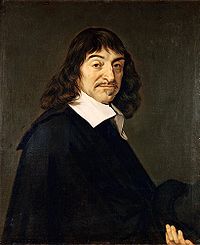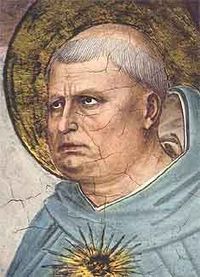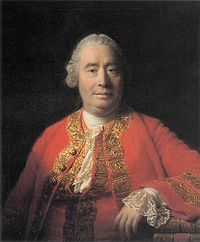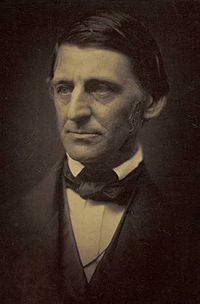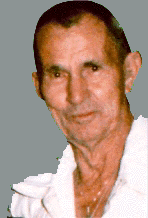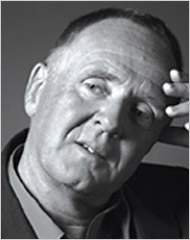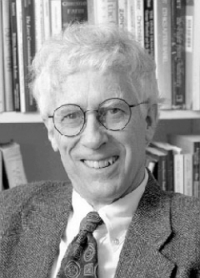|
Here I offer links to philosophers and those who have impressed me with their philosophies in some way. We should all have our own, individual philosophy. The more we can learn from great minds, the more capable we are of making our own path towards the truth.
| |
 |
Jiddu Krishnamurti - (May 11, 1895 – February 17, 1986) "was an Indian writer and speaker on philosophical and spiritual subjects. His subject matter included: psychological revolution, the nature of the mind, meditation, human relationships, and bringing about positive change in society. He constantly stressed the need for a revolution in the psyche of every human being and emphasized that such revolution cannot be brought about by any external entity, be it religious, political, or social. He said he had no allegiance to any nationality, caste, religion, or philosophy, and spent the rest of his life travelling the world, speaking to large and small groups and individuals. He wrote many books." -- quoted from Wikipedia - Jiddu Krishnamurti Website - Freedom From the Known, online audio book |
 |
Alan Watts - "wrote more than 25 books and articles on subjects important to Eastern and Western religion, introducing the then-burgeoning youth culture to The Way of Zen (1957), one of the first bestselling books on Buddhism. In Psychotherapy East and West (1961), Watts proposed that Buddhism could be thought of as a form of psychotherapy and not just a religion. Like Aldous Huxley before him, he explored human consciousness in the essay, "The New Alchemy" (1958), and in the book, The Joyous Cosmology (1962). Watts felt that absolute morality had nothing to do with the fundamental realization of one’s deep spiritual identity. He advocated social rather than personal ethics. In his writings, Watts was increasingly concerned with ethics applied to relations between humanity and the natural environment and between governments and citizens." -- quoted from Wikipedia - Alan Watts Website, Store - YouTube |
 |
Samuel Langhorne Clemens - (November 30, 1835 – April 21, 1910), better known by his pen name Mark Twain, was an American author and humorist, entrepreneur, publisher and lecturer. Among his novels are The Adventures of Tom Sawyer (1876) and its sequel, Adventures of Huckleberry Finn (1885), the latter often called "The Great American Novel". -- quoted from Wikipedia - "Mark Twain gave pleasure – real intellectual enjoyment – to millions, and his works will continue to give such pleasure to millions yet to come ... His humor was American, but he was nearly as much appreciated by Englishmen and people of other countries as by his own countrymen. He has made an enduring part of American literature." -- President William Howard Taft - Twain's Interactive Scrapbook - Mark Twain Museum - Official Website |
 |
Avram Noam Chomsky (born December 7, 1928) is an American linguist, philosopher, cognitive scientist, historian, social critic, and political activist. Sometimes described as "the father of modern linguistics," Chomsky is also a major figure in analytic philosophy and one of the founders of the field of cognitive science. He holds a joint appointment as Institute Professor Emeritus at the Massachusetts Institute of Technology (MIT) and laureate professor at the University of Arizona, and is the author of over 100 books on topics such as linguistics, war, politics, and mass media. Ideologically, he aligns with anarcho-syndicalism and libertarian socialism. - chomsky.info the Noam Chomsky Website - Wikipedia - YouTube - Requiem for the American Dream 1 hr. 13 min. video - biography.com - Books for Sale - |
 |
Aldous Huxley - SunGraffix Local Content - (26 July 1894 – 22 November 1963) "was an English writer and one of the most prominent members of the famous Huxley family. Best known for his novels including Brave New World and a wide-ranging output of essays, Huxley also edited the magazine Oxford Poetry, and published short stories, poetry, travel writing, film stories and scripts. He was a humanist, pacifist, and satirist, and he was latterly interested in spiritual subjects such as parapsychology and philosophical mysticism. He is also well known for advocating and taking psychedelics. By the end of his life Huxley was widely recognized to be one of the pre-eminent intellectuals of his time and respected as an important researcher into visual communication and sight-related theories." -- quoted from Wikipedia - BRAVE NEW WORLD ? A Defence Of Paradise-Engineering - Aldous Huxley - somaweb.org - Aldus Huxley Media - Biography.com |
 |
Bertrand Arthur William Russell, 3rd Earl Russell, OM FRS (1872–1970) [Bertrand Russell] was a British philosopher, logician, mathematician, historian, writer, social critic, political activist, and Nobel laureate. In the early 20th century, Russell led the British "revolt against idealism". He is considered one of the founders of analytic philosophy along with his predecessor Gottlob Frege, colleague G. E. Moore and protégé Ludwig Wittgenstein. He is widely held to be one of the 20th century's premier logicians. With A. N. Whitehead he wrote Principia Mathematica, an attempt to create a logical basis for mathematics. His philosophical essay "On Denoting" has been considered a "paradigm of philosophy". His work has had a considerable influence on mathematics, logic, set theory, linguistics, artificial intelligence, cognitive science, computer science and philosophy, especially the philosophy of language, epistemology and metaphysics. Russell was a prominent anti-war activist and he championed anti-imperialism. Wikipedia - Encyclopædia Britannica - Bertrand Russell - Face to Face Interview 1959 - archive.org works of Betrand Russel - The Bertrand Russell Society - Wikiquote - Bertrand Russell - Great Interview with John Chandos - 1961 |
 |
Terence Kemp McKenna (November 16, 1946 – April 3, 2000) "was an American ethnobotanist, mystic, psychonaut, lecturer, author, and an advocate for the responsible use of naturally occurring psychedelic plants. He spoke and wrote about a variety of subjects, including psychedelic drugs, plant-based entheogens, shamanism, metaphysics, alchemy, language, philosophy, culture, technology, environmentalism, and the theoretical origins of human consciousness. He was called the "Timothy Leary of the '90s", "one of the leading authorities on the ontological foundations of shamanism", and the "intellectual voice of rave culture" His outpouring of unique thoughts was a marvel to many. "To write him off as a crazy hippie is a rather lazy approach to a man not only full of fascinating ideas but also blessed with a sense of humor and self-parody," -- quoted from Wikipedia - McKenna at EROWID - Facebook - Books - YouTube |
 |
Robert Anton Wilson (born Robert Edward Wilson; January 18, 1932 – January 11, 2007) "was an American author, novelist, essayist, editor, playwright, poet, futurist, and self-described agnostic mystic. Recognized as an Episkopos, Pope, and saint of Discordianism, Wilson helped publicize the group through his writings and interviews. Wilson described his work as an "attempt to break down conditioned associations, to look at the world in a new way, with many models recognized as models or maps, and no one model elevated to the truth". His goal being "to try to get people into a state of generalized agnosticism, not agnosticism about God alone but agnosticism about everything." -- quoted from Wikipedia - Official Website - Books - YouTube |
 |
Arthur Schopenhauer - 22 February 1788 – 21 September 1860) was a German philosopher. "He is best known for his 1818 work The World as Will and Representation (expanded in 1844), which characterizes the phenomenal world as the product of a blind noumenal will. Building on the transcendental idealism of Immanuel Kant, Schopenhauer developed an atheistic metaphysical and ethical system that rejected the contemporaneous ideas of German idealism. He was among the first thinkers in Western philosophy to share and affirm significant tenets of Indian philosophy, such as asceticism, denial of the self, and the notion of the world-as-appearance. His work has been described as an exemplary manifestation of philosophical pessimism." -- quoted from Wikipedia - YouTube - The Darkest Philosopher in History - Arthur Schopenhauer - 17 Min. - YouTube - The Metaphysical Philosophy of Arthur Schopenhauer with Bernardo Kastrup - 52 Min. - Books - Project Gutenberg |
 |
Friedrich Nietzsche's key ideas include the Apollonian/Dionysian dichotomy, perspectivism, the Will to Power, the "Death of God", the Übermensch and "Eternal Recurrence." One of the key tenets of his philosophy is the concept of "life-affirmation," which embraces the realities of the world we live now in over the idea of a world beyond. It further champions the creative powers of the individual to strive beyond social, cultural, and moral contexts. His radical questioning of the value and objectivity of truth has been the focus of extensive commentary, and his influence remains substantial, particularly in the continental philosophical schools of existentialism, postmodernism, and post-structuralism. His ideas of individual overcoming and transcendence beyond structure and context have had a profound impact on late-twentieth and early-twenty-first century thinkers, who have used these concepts as points of departure in the development of their philosophies...--quoted from Wikipedia Read Some of His Books for Free - The Friedrich Nietzsche Society |
 |
Thomas Jefferson (April 13 [O.S. April 2] 1743 – July 4, 1826) was an American Founding Father who was the principal author of the Declaration of Independence and later served as the third President of the United States from 1801 to 1809. A proponent of democracy, republicanism, and individual rights motivating American colonists to break from Great Britain and form a new nation, he produced formative documents and decisions at both the state and national level. Jefferson mastered many disciplines, which ranged from surveying and mathematics to horticulture and mechanics. He was a proven architect in the classical tradition. Jefferson's keen interest in religion and philosophy earned him the presidency of the American Philosophical Society. He shunned organized religion, but was influenced by both Christianity and deism. He was well versed in linguistics and spoke several languages. He founded the University of Virginia after retiring from public office. He was a prolific letter writer and corresponded with many prominent and important people throughout his adult life. His only full-length book is Notes on the State of Virginia (1785), considered the most important American book published before 1800.- Wikipedia - The Dark Side of Thomas Jefferson - Thomas Jefferson, a Brief Biography - American History for Truthdiggers: The Jeffersonian Enigma (1800-1808) |
 |
Voltaire, pseudonym of François-Marie Arouet, (born November 21, 1694, Paris, France—died May 30, 1778, Paris), one of the greatest of all French writers. Although only a few of his works are still read, he continues to be held in worldwide repute as a courageous crusader against tyranny, bigotry, and cruelty. Through its critical capacity, wit, and satire, Voltaire’s work vigorously propagates an ideal of progress to which people of all nations have remained responsive. His long life spanned the last years of classicism and the eve of the revolutionary era, and during this age of transition his works and activities influenced the direction taken by European civilization. He bequeathed a lesson to humanity, which has lost nothing of its value. He taught his readers to think clearly; his was a mind at once precise and generous. “He is the necessary philosopher,” wrote Lanson, “in a world of bureaucrats, engineers, and producers.” The Voltaire Foundation - Wikipedia - The Works of Voltaire, Free to Download - Voltaire's Philosophy at the-philosophy.com - In a Nutshell - Encyclopædia Britannica |
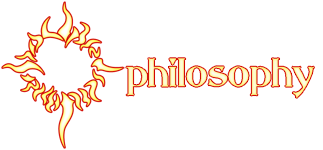 |
|




